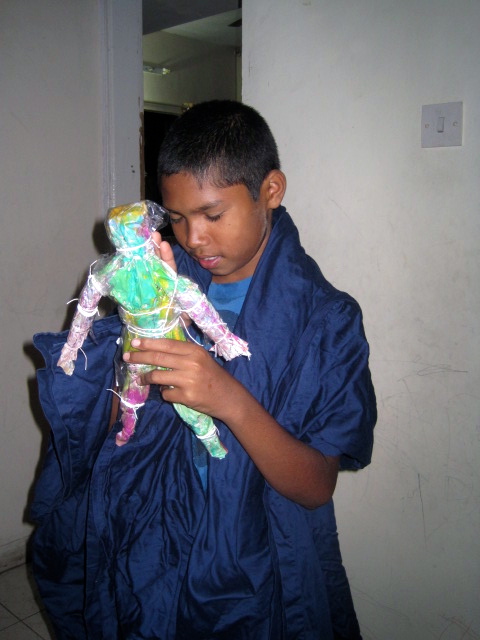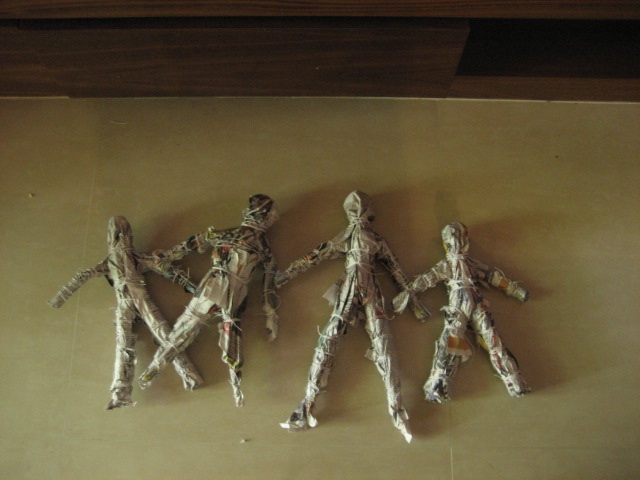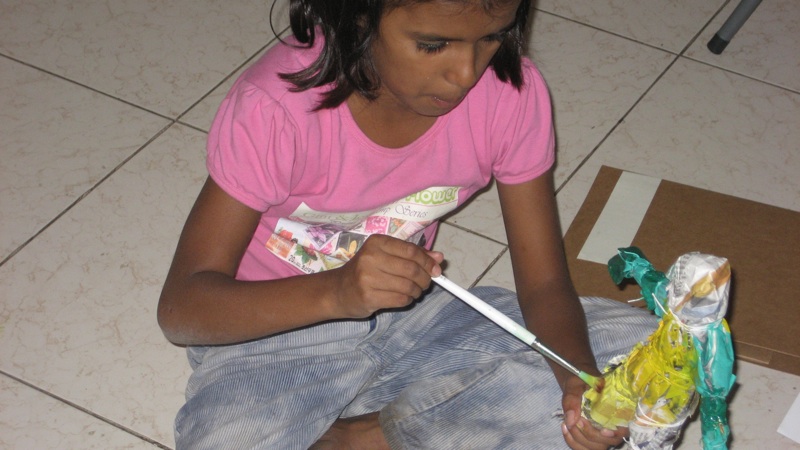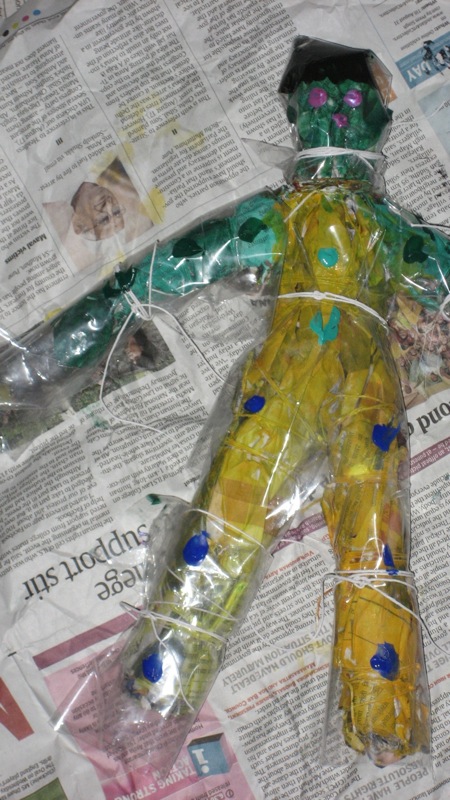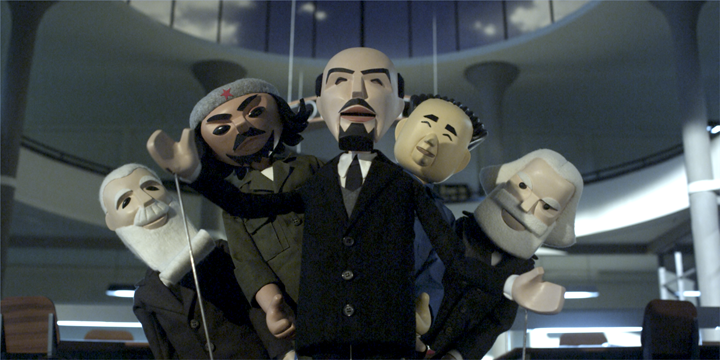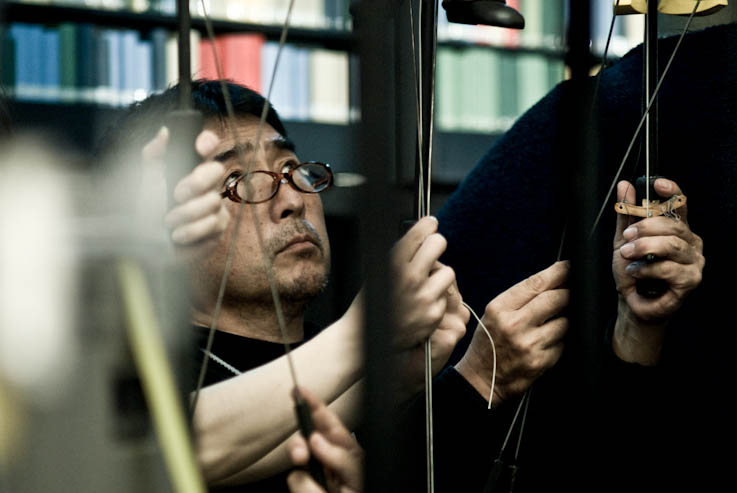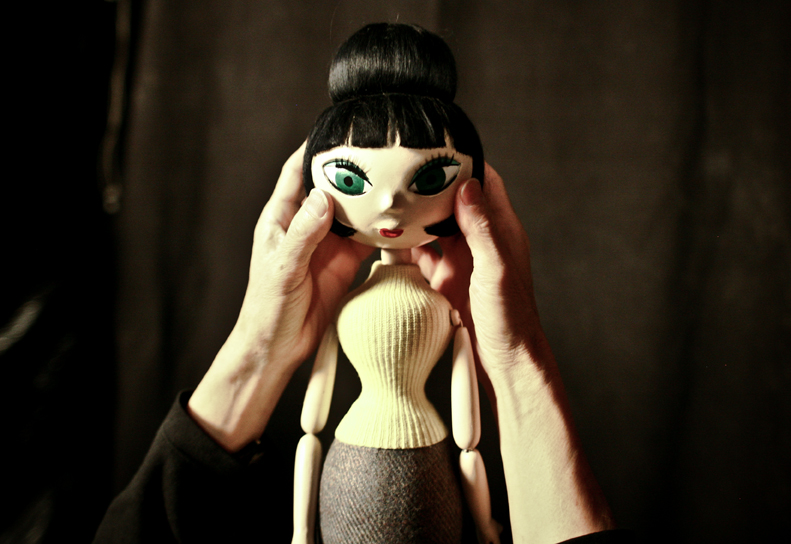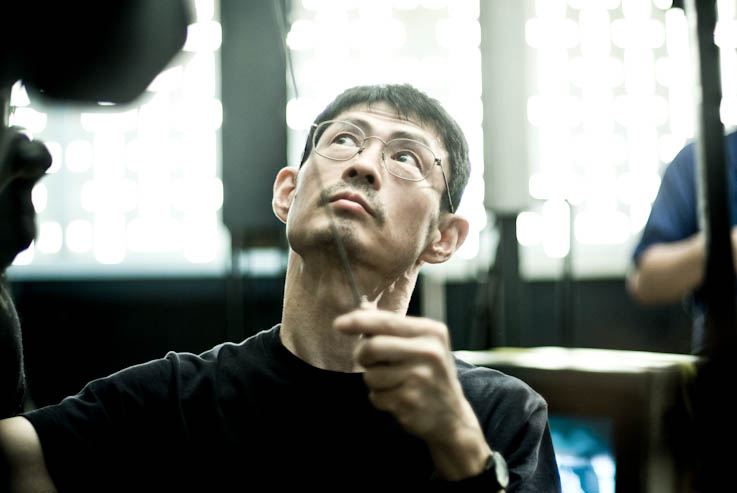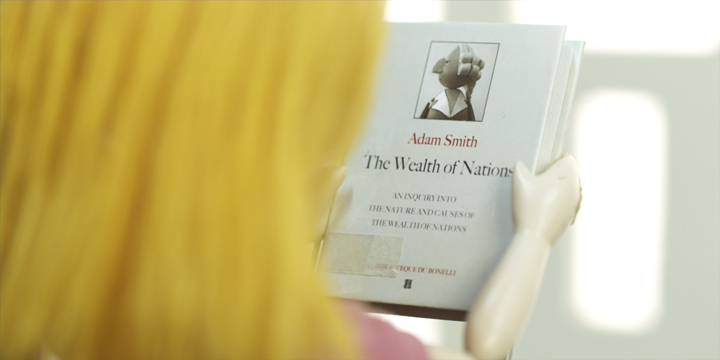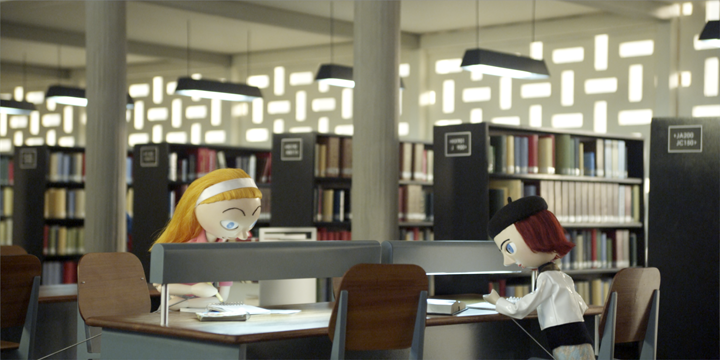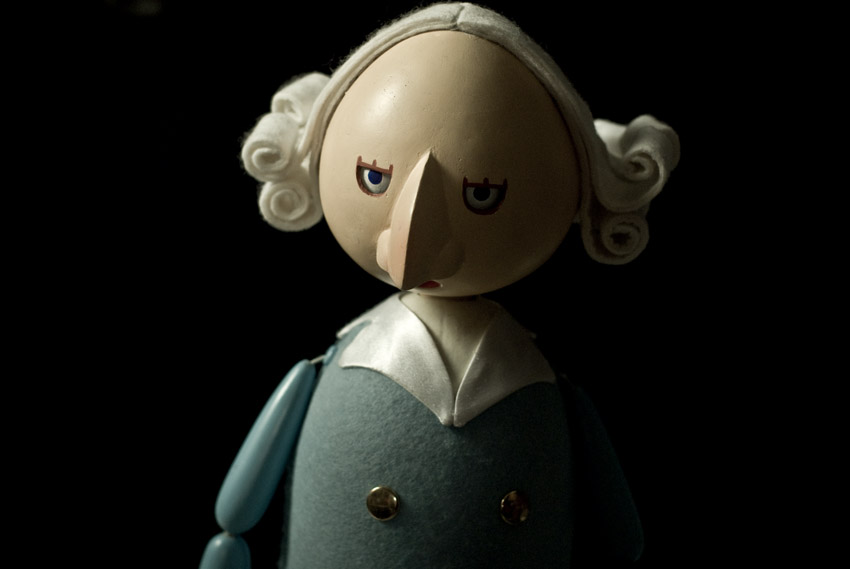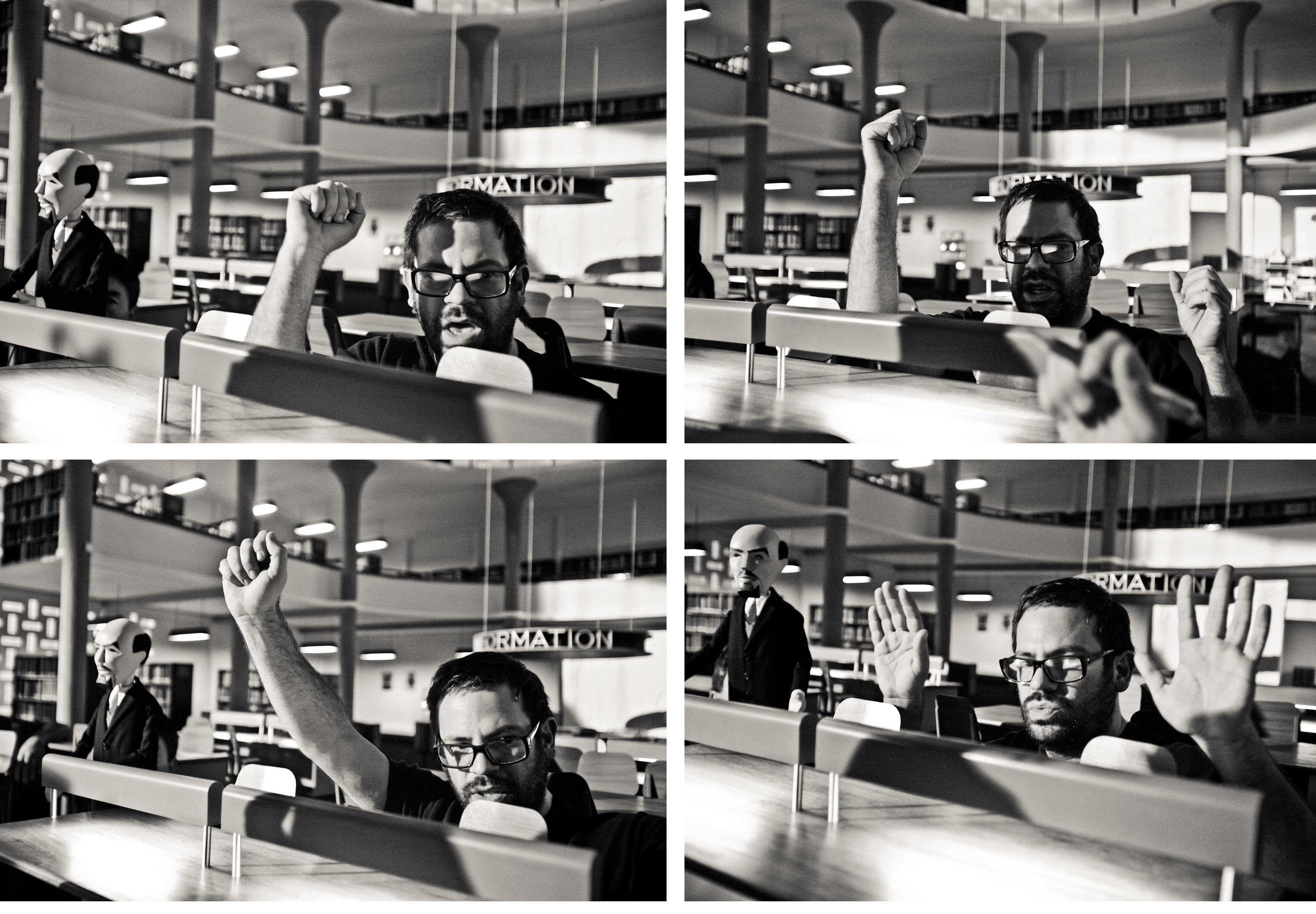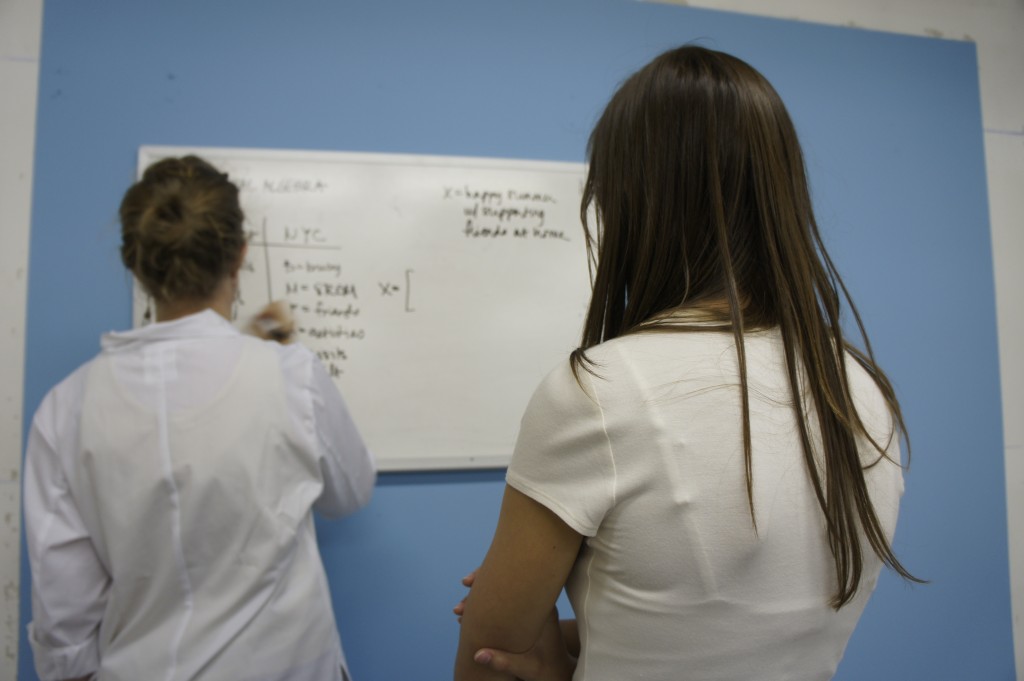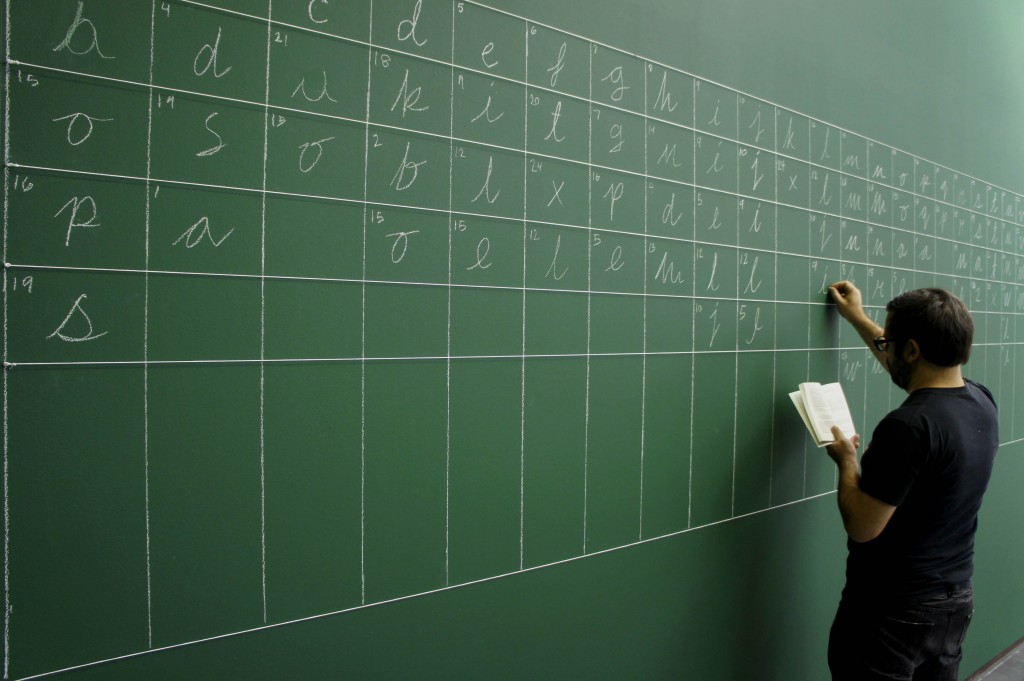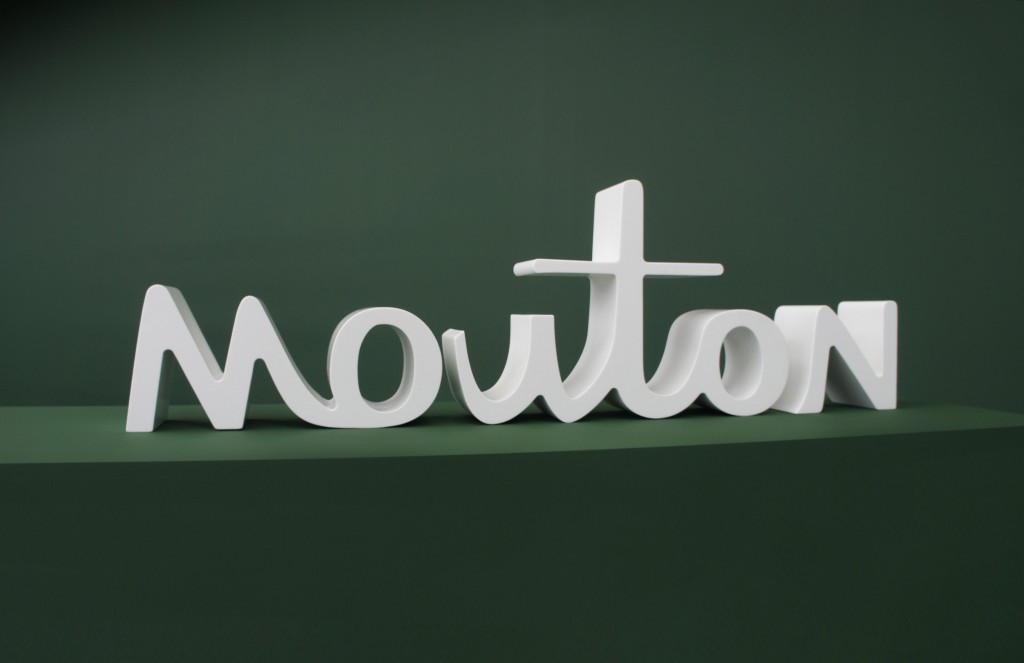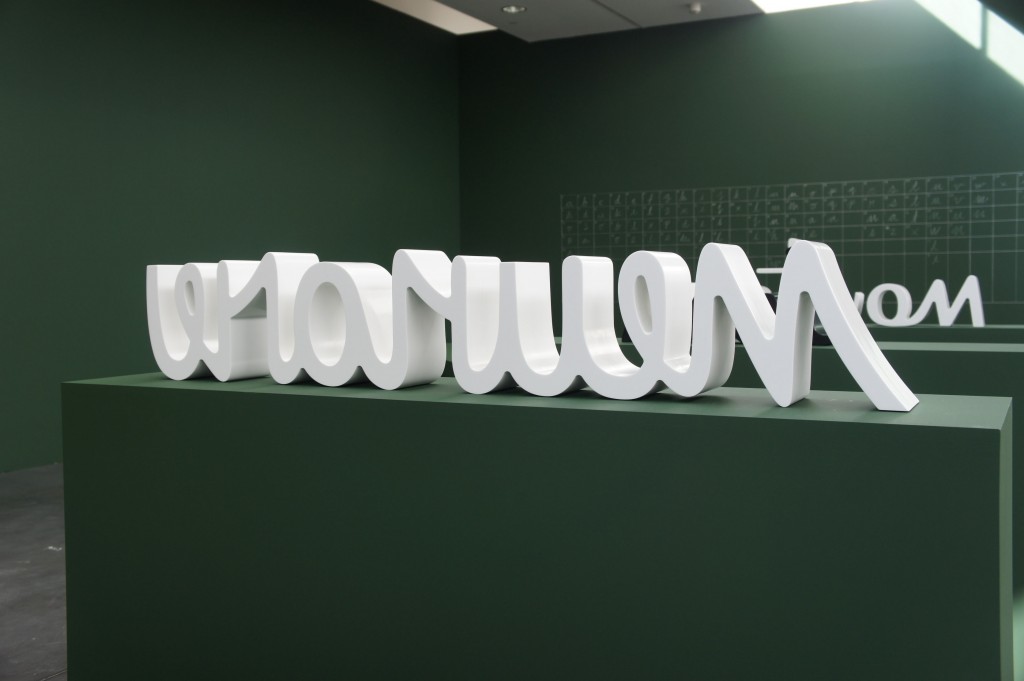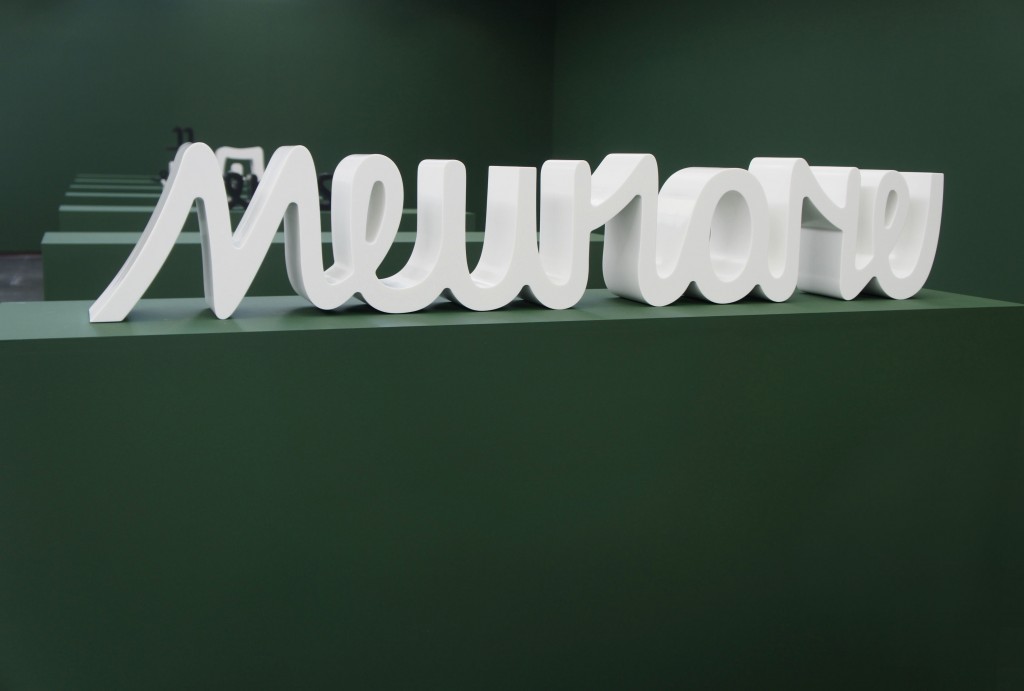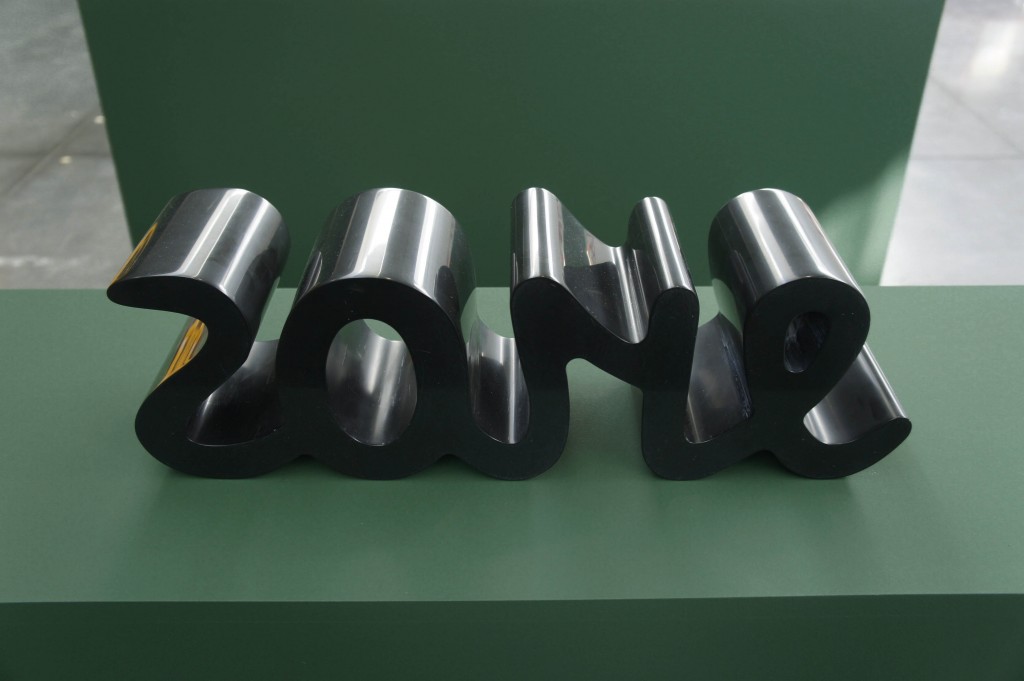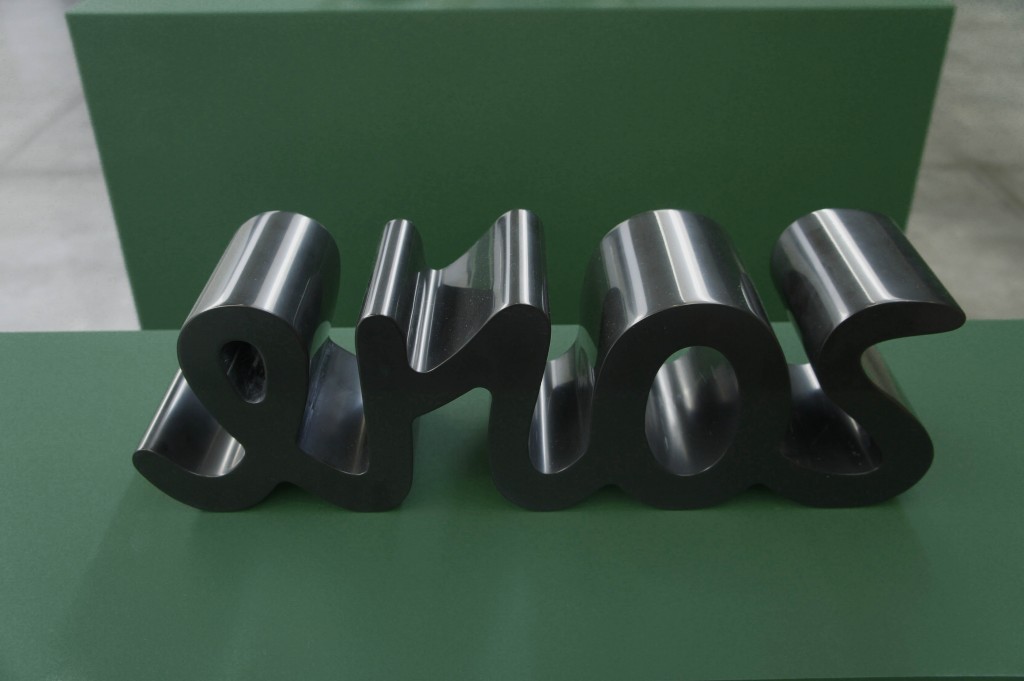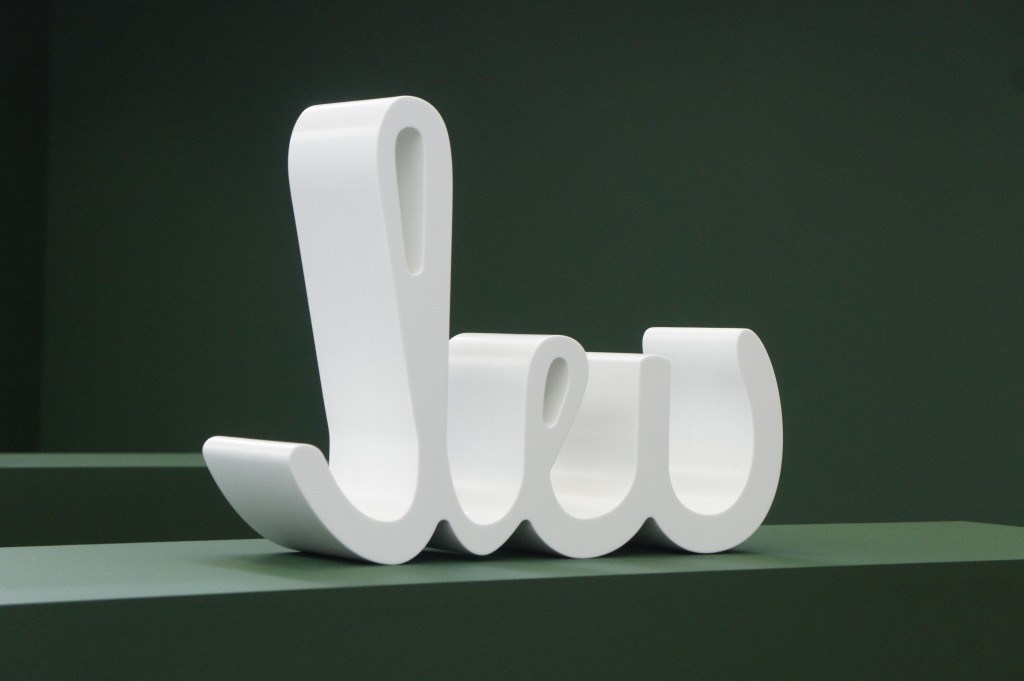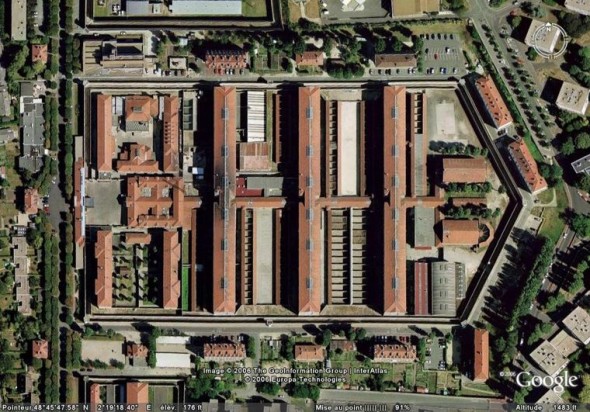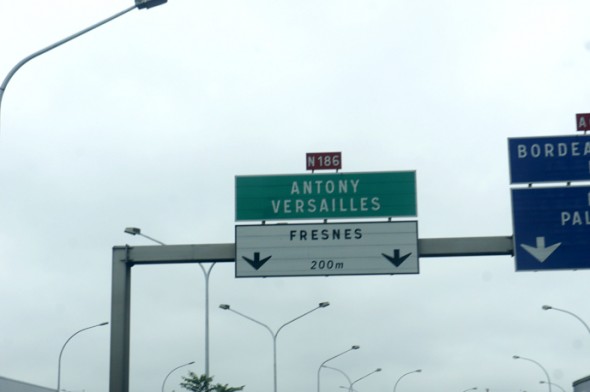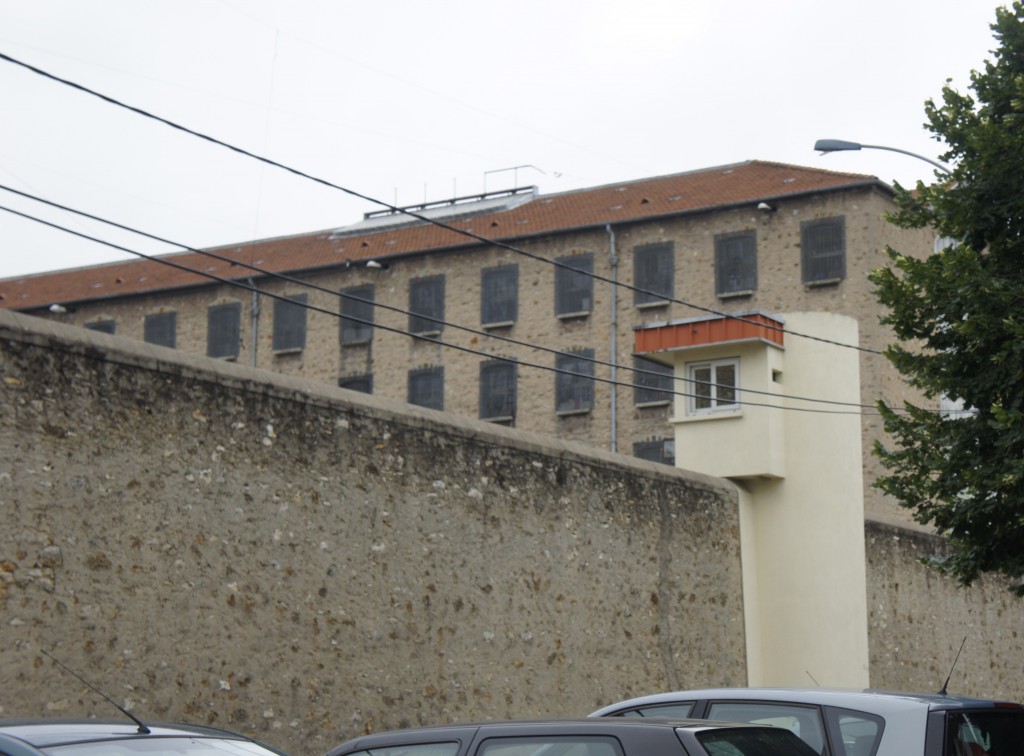Marx and Smith – the Breakup pt.2
Posted: November 8, 2011 | Project: Baby Marx | Tags: Baby Marx |http://vimeo.com/30936754
Marx and Smith – the Breakup pt.1
Posted: November 8, 2011 | Project: Baby Marx | Tags: Baby Marx |http://vimeo.com/30935717
The Philosophical Casino Book of Questions
Posted: September 27, 2011 | Project: Sanatorium | Tags: Sanatorium |
Am I doing this correctly?
Am I going to find the way to a fulfilled, satisfied, productive, happy life?
Am I making the right choice?
Am I my name?
Am I on the right career path?
Am I on the right path?
Am I really insatiable?
Am I really still in love with M?
Am I utilizing my talents to the fullest?
Are a cat’s nine lives merely it’s visible projections into our 3-D universe?
Are gay people born homosexual?
Are love and loss inseparable?
Are things going to easy for me?
Are we meant to stay in New York for more than two years?
Are you satisfied with the way your democratic ideas are in movement today?
Cake or Death?
Can a circle be squared?
Can I break through my self-imposed barriers?
Can I live without my parents?
Can I trust future generations?
Can one’s search for knowledge shift between planes of existence and still
maintain a semblance of some grounding?
Can the environment recover?
Can there be any mistakes if something good turns out of a mistake? How does
it effect my thinking, my reactions?
Can we change our fate?
Can wise discussion be made through a dice?
Can you find yourself in a place you’ve never been?
How will the EU/UK be beneficial to my career?
Define humanity
Did I make the right decision today? Is there a “right” decision?
Do dreams lead us to believe in God?
Do I have a duty to try and persuade others to stop doing what I believe is
wrong?
Do I have a soul?
Do I just escape from myself or do I move constantly out of dissatisfaction?
Do I need a home?
Do soulmates really exist?
Do we make our own choices or are our paths predefined?
Do you have a soul?
Do you like me?
Do you love Danzig too?
Does being a grandfather mean you are old?
Does belief in humanity and the agency it possesses as connected to some form
of rational choice imbue it with a sort of priori telos?
Does God exist?
Does God exist?
Does he like me? Like like like or just like?
Does John like me?
Does life get better as you age?
Does one have to pursue the best version of the self to be happy?
Does the girl that I’m seeing actually like me or is she using me?
Does the guy of my life live in NYC?
How can I accept that which is beyond my control and has great power over my
future?
How can I afford to live freely?
How can I be a better daughter?
How can I be a good influence and supportive in my family?
How can I be a good parent?
How can I be happy?
How can I be more kind to my roommate?
How can I be the most famous artist?
How can I become better?
How can I experience more joy?
How can I free myself from envy?
How can I get ____ to spend their life with me?
How can I get more in-tune with my subconscious?
How can I have more energy?
How can I improve my business?
How can I know when it’s right?
How can I learn to let go?
How can I learn to let go?
How can I make a better use of my time?
How can I make more money (and not be miserable while doing it?)
How can I make the most out of next year?
How can I overcome the obstacles that prevent me from creating and publishing
art?
How can I prevent myself from repeating old habits and negative behaviors?
How can I stop desiring something I don’t need?
How can one make the best use of time, make longer or fill it better?
How can one remain calm?
How can people stop wanting to accumulate things?
How can we receive insight?
How can you accept getting older?
How can you accept that one day you will die if you know there is nothing to
come afterwards?
How can you do what you love when you fear you won’t be good at it?
How could the infinite exist within us?
How deep is the river?
How did tigers get to be so awesome?
How do I access my artistic side more easily?
How do I be more happy?
How do I be supportive and good influence in my family?
How do I become more confident?
How do I become more efficient at work?
How do I begin?
How do I create meaning & purpose and happiness – – in this world?
How do I cure my brain tumors?
How do I find love?
How do I get over being insecure about my job?
How do I get over loss?
How do I incorporate the different aspects of myself – or more specifically how
I see myself , when representing myself in dealing with others – in career and
interpersonal relationships?
How do I keep from boring myself?
How do I know if I’ve made the right choices?
How do I know when it’s time to move on from my job?
How do I know when words stop the meaning of a Q?
How do I learn to put others first?
How do I make my life meaningful?
How do I move forward?
How do I move on from feeling guilty?
How do I stop slicing my driver?
How do I stop turninating about stupid shit?
How do I work better and happier with my co-workers?
How do leave my job?
How do you describe “blue” to a blind man?
How do you know?
How do you synchronize a tr-707, tr727 and a MC-202?
How do you trust?
How does a person stop playing out alternative versions of his/her life in his/her
head?
How does an individual balance ambition with being satisfied with their current
situation?
How does one achieve inner peace?
How does one find inner quiet/peace?
How does one live a meaningful life in a world of absurdity?
How does one maintain faith as an atheist?
How does your heart know when it is safe to love?
How important is the accumulation of money for oneself?
How is the best way to live our lives?
How late is Starbucks open?
How linked are one’s understanding and experience of sociability and
humanity?
How long does sadness remain?
How long should one sustain their idealism?
How long should you wait for someone?
How long will I hang onto my apartment?
How long will I live in NY?
How much should I think about the people in my life when deciding where to
move?
How should I approach planning my career?
How should I approach planning my career?
How should I proceed?
How should I read the guidance I receive?
How should I spend my upcoming year of free time?
How to help my children achieve their “dreams”?
How to live for myself?
How will I know if I have made the right choices (career, love)?
How will I make more money in the face of a growing global economic
recession?
How will I realize success?
How will my life and love change the lives of others?
How would moving effect my family?
How should I overcome my shyness?
I get the whole Panthion goals thing – but why did you all think you needed it?
I’ve reached a fork in the road and need to choose a path, which way should I
go?
If E=MC2 , what is E if C approaches zero?
If I get a dog will I never marry?
If I were to leave my life-as-is tonight, would my life-as-could-be make me
happy/satisfied?
If sex is not a sin in God’s eye, why do religious people put such an emphasis
on it?
If so much of what we “know” is generated by the dynamics of the organs of the
body, what part of consciousness can endure after death? Must it have a memory
of the body?
If the dialectical struggle that results in the negation of the terms of existence
were to ever fulfill resolve itself, what comes next?
If will go back living in Europe?
If your heart is pure and good, will good things naturally come to you, or do you
have to still search out what is good for you?
In order to find love, is it more important to be vulnerable or to be true to your
own needs?
Invest in photo equipment?
Is a minimal lifestyle sustainable for me?
Is David dating that Ho?
Is dreaming (of future hopes) a luxury?
Is Eyeheart going to be am interesting experience?
Is god cheesy?
Is happiness the most important thing?
Is ignorance bliss or cowardice?
Is it better to live in the city or country?
Is it better to stir the pot and plan or just wait and see what rises?
Is it better to underuse or overuse something?
Is it easier to be alone in a crowd or an empty space?
Is it healthy to remind yourself of traumatic experiences from the past?
Is it important to live?
Is it more important to seek happiness and fulfillment within ones own lifetime
or to have a lasting and meaningful impact on mankind’s history?
Is it more powerful to do an action for itself, for it’s value as an action in it’s
own right, or is it more powerful to do an action successfully, as a means
towards an end that is demonstrably good?
Is it not a good choice to focus on making art as opposed to other more practical
areas?
Is it ok to be driven by hate?
Is it ok to dislike religious people?
is it possible to be faithful to your partner always?
Is it possible to truly understand another person?
Is it time for big change?
Is language meaningful in any way? Can it express a universal truth?
Is leaving New York having kids and living in the suburbs going to make me
happy?
Is love important?
Is moving back the right decision?
Is my relationship that was ended because of distance now on an inevitable spiral downward to a meaningless life.
Is my search to find life’s path going to lead me further from my current self or
closer?
Is perfect love possible?
Is personal vanity a good thing or bad? In other words, is narcissm necessary for
survival?
Is spending money on an MSW education a reasonable reason for a lifetime of
debt?
Is straight or curly hair more attractive?
Is suicide a human right?
Is the guy I’m going on a date with Tues going to be “the one”?
Is the universe only perception?
Is there a balance between art and protagonism?
Is there actually a God and does he watch over us?
Is there life after death?
Is there life on other planets?
Is there such a thing as a true monogamous relationship?
Is there such a thing as life without drama?
Is there such a thing as mans “true nature” or soul? Or do we accumulate our nature as we age?
Is there such a thing as truth?
Is there such a thing as unselfish love?
Is there such a thing truth?
Is this it?
It is a bit sour but I believe our friendship will survive this
J + L =?
Meaning?
Now that I’m turning 47 what shall I do with my life?
Petranch rules and I’m happy he got a lot of you thinkers started, but why did it
all end up having to be about God?
Queens, Brooklyn or Manhattan?
Romantically, or in choosing a life partner, how do I focus on who would be the
best match?
Shall I marry my girlfriend?
Should I adopt a child in this lifetime?
Should I adopt Jeff?
Should I be single or not and why?
Should I be writing rather than working full-time?
Should I change jobs?
Should I change my job?
Should I do what he’s asking me to do?
Should I eat dinner and if so what should I get?
Should I incorporate more fruit and vegetables in my diet? If so, what fruit
and/or vegetables should I choose?
Should I get a pet?
Should I go back to music?
Should I go to film school?
Should I go to work tomorrow?
Should I got to Switzerland next month?
Should I have a change in career?
Should I invite my girlfriend to visit my family in another state even though the
relationship is fairly new?
Should I kick one of my bridesmaid out of the wedding party?
Should I listen more to the dead or to the living?
Should I make completing certification a priority?
Should I move here in the fall?
Should I move to California?
Should I procreate?
Should I quit my job to go back to school?
Should I quit my job?
Should I re-locate in the next year?
Should I send letter?
Should I start doing yoga?
Should I stay with a caring but emotionally detached person – will I be happy
enough?
Should I stick to architecture?
Should I stop sleeping with F?
Should I take care of peanut?
Should I take the job at EH?
Should I try to stay with M+R?
Should I work harder or just relax?
Should I WWOOF or should I focus on NYC?
Should love be the ultimate goal?
Should we stay on this NYC track or change lanes?
Should I go to PPSC?
So what’s next And perhaps more tell me something I don’t know
Will I feel satisfied with my adventure in Japan?
What should I do the year after next?
What am I looking for?
What am I meant to do in life?
What am I supposed to do now?
What am I?
What can I do to achieve my personal goals in an effective/non-aggressive yet
not to stressful direction?
What combination of love and career will make me happy?
What do I do in August?
What do I need to know now?
What do I need to know now?
What do I need to work on?
What does it mean to be a good mother?
What does it mean to be a good person?
What does it mean to be an individual?
What does it mean to be happy?
What does it mean to come from a place?
What does it mean to know oneself?
What does it mean to say children are innocent?
What good come out of the bad situation I’m currently in? (the Germans)
What happened to my blue dress?
What happens next?
What happens when we die?
What is “success” in life?
What is beauty?
What is beauty?
What is freedom?
What is good?
What is happiness?
What is happiness?
What is home?
What is libido?
What is love?
What is love?
What is more important family or career?
What is my best use?
What is my biggest personal challenge?
What is my identity?
What is my lucky number?
What is my purpose in this world?
What is my real passion?
What is reality?
What is romanticism?
What is the best borough and why?
What is the best path I should take after finish my masters program?
What is the best use of my time and energy?
What is the best use of my time/life?
What is the best way to take advantage of the summer?
What is the deal with dreams?
What is the goal of an ethical life?
What is the key to finding the right path?
What is the key to happiness?
What is the key to maintaining perspective?
What is the meaning if all this?
What is the meaning of life?
What is the meaning of life?
What is the meaning of life?
What is the meaning of life?
What is the meaning to my life?
What is the most enlightened human activity that I can participate in?
What is the most important question we ask?
What is the new black?
What is the next step?
What is the origin of war?
What is the real meaning of “soulmate”?
What is the right date?
What is the right type of work for me?
What is the role of personality in art?
What is the source of music?
What is time?
What is true love?
What is wisdom and is it desirable?
What job will I get?
What kind of cheese will I like?
What kind of mother will be?
What kind of job will I get?
What makes a person interested in attending an installation like this?
What matters to me more than anything?
What motivates us?
What of the next 10 years?
What religion is the best, most useful religion?
What should I do with my career?
What should be my moral compass?
What should I be when I grow up?
What should I do as a profession?
What should I do regarding my professional life?
What should I do right…now?
What should I do with my life?
What should I do with the rest of my life?
What should my next move be?
What sort of relationship will I have with my mother?
What vocation should I embark on next?
What will my next job be? And will it be significant in the world?
What will be my legacy? What will the world remember me for?
What will happen when my dad dies?
What will I eat for dinner?
What will I get from New York?
What will it take for me to finish my project – in a way that I am totally satisfied
with it?
What will it take to figure things (life) out?
What will lead me to satisfaction (and away from restlessness) in my life?
What will my love life/family life be like in 5 years?
What will the future be of the monetary world: global economy?
What work should I do?
What would going back to Buenos Aires imply?
What would make me most content?
What’s a way to be happy?
What’s best for my dog?
What’s love got to do, got to do with it?
What’s my dharma?
What’s my problem?
What’s the next step?
What’s the best kind of dog?
Why are languages different?
When am I going to return to Europe?
When faced with a conflict between two options, how does one decide on the
best choice?
When I die will it just be “lights out”?
When is the right time to make a commitment?
When should I quit my day job?
When should women serve as soldiers?
When we think do we create our thoughts?
When will humans be replaced by something smarter, stronger and better
looking?
When will I die?
When will I marry?
When will I travel again?
When will Jenn stop lecturing me?
When will my healing process be over?
When will the economy improve?
When will the world end?
When will the world end?
Where am I going?
Where can I find a job?
Where do I want to go tomorrow?
Where is God?
Where might I be happiest?
Where should I live before I get old then die or where should I call home?
Where should I live?
Where should I live?
Where should I move?
Where should I travel next?
Where will I be in five years?
Where will I be in five years?
Where will I be in my career in the next 5 to 10 years?
Where will my home be?
Where will things go with S.S?
Where will things go with us?
Who am I?
Who will I build life with?
Who will win the next presidential election?
Why am I here at this exhibit?
Why am I here?
Why are all my favorite authors Jewish and write heavily on Jewish themes?
Why are all of my friends suddenly getting cats?
Why are humans so destructive to each other and to this planet, our home?
Why are relationships so hard?
Why are some people successful after working hard but other people fail after
working hard?
Why bother?
Why can I travel through space but not time? Why is time so much more part of
my mind?
Why can’t cats talk?
Why can’t I say what I’m thinking?
Why can’t we all just get along?
Why can’t we always be happy?
Why did I not get married?
Why did we invent God?
Why do bad things happen to good people?
Why do good things happen to bad people?
Why do I have so much trouble making decisions?
Why do I like food that’s unhealthy for me?
Why do I LOVE CIGARETTES?
Why do I NOT LOVE MY FAMILY?
Why do I procrastinate?
Why do New Yorkers always look angry?
Why do only humans have consciousness?
Why do people believe in God?
Why do people suffer?
Why do we exist?
Why do we exist?
Why do work in jobs we don’t love?
Why does anyone care about Weiner’s Weiner?
Why does every question we can pose always, in the end, bring us back to the
question of writing?
Why does it seem that no-one is ever happy?
Why does progress, as the world continues, make for a worse world to live in?
But maybe the grass is greener on the other side.
Why does the @ sign look so silly?
Why is he worth as a friend?
Why is it so hard to maintain a singular focus in my life?
Why is it hard for me to do art that could be sold?
Why is it so hard for me to find a life partner (a loved one, one that loves me)?
Why is it so hard to trust?
Why is Mexican food so good?
Why is there evil in the world?
Why?
Will a person be happier making sure they’re financially comfortable rather
than following whims?
Will any work?
Will art always be relevant?
Will he ever understand me fully?
Will he find the love of his life?
Will I be “complete” at some point in my life?
Will I be a teacher for the rest of my career?
Will I be able to get back to my career in music/theatre?
Will I be able to take a vacation next year?
Will I be engaged within the next two years?
Will I be happy with my new life and surroundings after my move to sunset park?
Will I be reunited with loved ones in the after-life. Is there life after this one?
Will I be satisfied when I get old if I stop having sex?
Will I be successful in completing the transition I believe I’m currently making
and will it be soon?
Will I become Tamors?
Will I come to except what I cannot change?
Will I die a peaceful death?
Will I die young?
Will I ever find long-lasting sustainable happiness?
Will I ever get married?
Will I ever have another dog?
Will I ever just be satisfied or will I always continue to chase something
else/more?
Will I ever lose my anxiety?
Will I ever make a script I’ve wrote into a movie?
Will I ever make out with Brett?
Will I EVER run my own company?
Will I ever witness a birth or death?
Will I find a job I am happy with in the next 2 months?
Will I find a job that I’m happy with?
Will I find fulfillment in my new career?
Will I find my soul-mate?
Will I find my soul-mate?
Will I find myself in the midst of my family?
Will I find satisfaction in my work ever?
Will I find unconditional love in my next city?
Will I get in to graduate school?
Will I get so sucked into a certain path by my new job that I won’t be able to
break into other areas of interest?
Will I go to Lebanon?
Will I have a family in 10 years?
Will I have the privilege to age with grace an equanimity I desire?
Will I hook up with Sylvia?
Will I keep traveling throughout my life?
Will I know for certain when I’ve reached the happiest time of my life?
Will I like Colorado?
Will I like my new job?
Will I live to be 100?
Will I manage to fix my job?
Will I marry C.K?
Will I marry my boyfriend?
Will I move to a city like New York?
Will I pass my French class?
Will I regret never having kids?
Will I stay in NYC often this year?
Will I stay in touch with my family?
Will I triumph in solving my biggest personal challenge?
Will it be as hot as yesterday for the rest of the summer?
Will it be better at home?
Will Kathia let me go?
Will love ever find me?
Will me wife quit her job soon?
Will meditation make me a better person?
Will my career path be facing only one direction in the next year?
Will my current relationship last and will I (we) continue to grow and learn as a result?
Will my parent’s dog, Whiskey, get better?
Will my parents ever re-marry/date seriously?
Will Sara continue to hear?
Will the new phase bring mostly joy or distress?
Will there be peace on earth one day?
Will this all be worth it in the end?
Will this all have a good ending?
Will this new job work out for me?
Will we get bedbugs?
Will we leave NYC?
Will X finish what he started?
What percentage of people will treat “Sanatorium” as real therapy?
Would I be more disciplined if I became a vegan?
Would I find the right way to pursue my role?
Philisophical Casino is a series of polyhedra that work as dices or dreidels. Each side of these volumes features a philosophical quote. The player may ask a question and make the top spin, as one may ask an oracle. The act of spinning the dreidel breaks the barriers between the object and the user, an intimate relationship is created and in return for their question a philosopher provides a phrase to reflect on, be it an answer for an abstract question or advice to overcome a specific situation.
When asking an oracle, the mind is open to an intuitive interpretation of a symbol.
[Questions from New Yorkers at SANATORIUM Stillspotting, Guggenheim, NY]
Goodoo reaches India
Posted: September 1, 2011 | Project: Sanatorium | Tags: Goodoo, Sanatorium |
Performing artist Anna Konkle, who participated as one of the therapists at the Stillspotting Sanatorium in Brookyln, recently partook in the Ashraya Inititative for Children, India, and with her she took Goodoo therapy. She transformed the therapy into a magic exercise for children who are part of the outreach program that helps over 200 children living in the slums of India.
The Ashraya Inititative has modest beginnings on the streets of India but has expanded in a a number of communities and developed several outreach programs. The education outreach program is designed to help children enrol in school, provide them with materials they need and help maintain social and emotional well-being. Two such children are Poonam and Rahul. Anna reported back and this is her account of what happened….
Find out more or donate to this cause, please visit:
ashrayainitiative.org/do
On Alienation: Marx and Smith discover there are invisible forces they do not understand
Posted: August 26, 2011 | Project: Baby Marx | Tags: Baby Marx |
Baby Marx at the Walker Art Center
Posted: August 11, 2011 | Project: Baby Marx | Tags: Baby Marx |Baby Marx began as Mexican artist Pedro Reyes’ idea for a television sitcom in which puppet versions of key figures in the history of economics are brought back to life. Intended as a way to make the lofty and often distorted fundamentals of socialism and capitalism accessible to a broad audience, the piece has undergone several iterations since its inception four years ago. For his upcoming exhibition at the Walker, on view August 11, 2011 – November 27, 2011 Reyes will use Perlman Gallery and the entire Walker campus to begin filming a documentary version ofBaby Marx that examines its development to date as well as the complex issues with which it grapples. This past spring Reyes joined curators Bartholomew Ryan and Camille Washington to discuss the project in depth.
Camille: How did Baby Marx begin?
Pedro: I first had the idea for something I was working on in London, but it was too ambitious and was rejected. So, I put it in my drawer of unrealized projects. Then, in the lead up to the 2008 Yokohama Triennial in Japan, I was riding the Tokyo subway with Akiko Miyake, one of the curators of the exhibition, and I told her, “Well, I have this idea for a TV puppet show whose main characters would be Karl Marx and Adam Smith.” I like that there is a saying in Japan that says “A samurai doesn’t know the word impossible.” Miyake-san responded like is a true samurai, she said, “If that’s what you want, we’ll do it.” From there deciding what kind of puppets to use led to a super interesting exploration of the Japanese tradition of puppeteering.
Bartholomew: Why puppets?
Pedro: I think that puppets require a mastery and spontaneity not found in stop motion or animation. Also, puppeteering has been the historical equivalent to political cartoons in the performing arts. It is a form of critique similar to the ventriloquist or the court joker who was the only one who could make jokes in front of the king. The joker also often used some kind of doll or puppet. So, the puppet would spit out truths that would be unbearable from the mouth of a person.
Bartholomew: This was around 2007. Can you remember what it was about Smith and Marx that felt relevant at that moment?
Pedro: They didn’t feel relevant at that moment. This is the time before the credit crisis and the collapse of the markets. It felt like a subject which was precisely not fashionable. People would ask, “Why Marx?”However, there was something I wanted to find out not only about the state of the world, but also I wanted to know where I was standing in the political spectrum.
At a certain point in your life, you have this negotiation of your own ideas. When you first read Marx it makes so much sense, but then if you read Smith it also makes sense.Marx tells you “In order to have some rich people, others need to be poor” and then you read Adam Smith who tells you “Hey, what is all that equality business? You work more; you shouldn’t earn the same as the lazy one, right?” You may just ignore these voices but in my head I continued to hear these two people debating. So, I thought it could be interesting to stage this conflict. Here you have two philosophers who didn’t have the chance to meet in real life talking to each other. But also you have two conflicting sides of human nature. The task at hand was to choose fragments from Marx and Smith (among others) and weave a story, hopefully with the idea that it would become entertaining.
Camille: How does the Smart-O-Wave microwave oven that you used for the initial teaser and pilot of Baby Marx fit into the picture?
Pedro: Actually, the invention of the Smart-O-Wave was a turning point. It became a dimensional door that allowed me to bring any thinker into the story by placing the book they wrote in the oven. So by “defrosting” their thoughts they come back to life. It’s like a flying carpet, it can take you anywhere.
Camille: You speak a lot about mobile seminars and radical pedagogy. Is that something that also really underpinned the project in the early stages as much as entertainment did?
Pedro: Yes, Baby Marx was thought of from the beginning as a primer, or you could say Political Science 101. Sometimes you see the movie before reading the book, and for this subject puppets seemed the perfect treatment. Plus there was no Marx movie, no Adam Smith movie.
Bartholomew: The puppets were designed in collaboration with famous Japanese puppet maker Takumi Ota. I know the process was quite extensive. Can you talk about working together?
Pedro: Takumi Ota was the perfect match for this project, because he is a genius at leaving out everything that is not necessary and using the simplest forms. My obsession was the use of abstract shapes both in fine art and folk craft. In Japan, wood carved toys made in the wheel are very similar to Oskar Schlemmer’s Bauhaus costume designs. So, fascinated by this extreme degree of abstraction, I started to design the characters using only platonic volumes; to cast the personality of a character in the simplest form. In fact the simplest form is a silhouette.
Bartholomew: This is when you made the Solids of Rotation studies…
Pedro: Exactly. This limitation was very productive. I gave Frederick Taylor a silhouette based in a hyperboloid, like a sand clock, because Taylor was obsessed with time management. With Marx’s it was obvious that I had to use his characteristic hairstyle which is like a trapezoid. Then, when you turn it into a solid of rotation it looks like a bit like samurai helmet. For Friederich Engels I took his long beard and made it into a spiral, like a party-blower; Che Guevarra has his beret and his goatee, so I made the head and the goatee like a top, and with the addition of the beret the solid of rotation looks like a hazelnut.
Camille: Did you work on the initial design alone or in collaboration?
Pedro: Takumi Ota made three-dimensional versions of drawings that I worked on in discussion with him. In the 1970s he designed characters for a series called Hyokkori Hiotan-jima, which means “the pumpkin island,” because the puppet heads were made with pumpkin seeds. The creative dialogue was great because I was thinking of what Ota San would like, almost trying to please him. It was almost a telepathic thing of trying to speak the same language, seeking the most extreme abstraction possible.
Bartholomew: You both passed these designs back and forth via the internet. He was in Japan and you were in Mexico for the most part.
Pedro: Yes, exactly. Due to the 15 hours difference Akiko and I met with Ota-san at 9pm, which would be his night. After seeing my drawing I would go to sleep and he would go on working all day making a clay model based on our conversations. Then, at 9 am in the morning (his night) we would meet again and review the progress. We went like this it a year and a half.
Camille: So, did you go there and finalize your designs with him or were they finalized by the time you arrived in Yokohama?
Pedro: There were several trips and meetings during that time. One of my favorite parts was the mechanics of how specific puppets operate. For instance, the Milton Friedman eyes turn and blink like dollar signs. Also, one side of his mouth is smiling and the other side is angry. His personality changes depending on which side of the camera it is facing. It is a way to show that two sides of capitalism: one charming and seductive, and other greedy and cruel.
[They laugh.]
Pedro: So, there are some interesting philosophical limits to the characters, but also the way they are built conditions their performativity.
Camille: Before the pilot you made a teaser. In fact, you exhibited the teaser along with the puppets for Yokohama. Was the trailer an exercise in how the puppets ultimately would move and function and be filmed?
Pedro: Yes, in the beginning I met Ryo Ito who is an amazing puppeteer and became the leader of the puppeteers. He could take a shoe and make it perform Hamlet. So the movement design for each character was genius: the arrogant manners of Adam Smith, the tidy and nervous movements of Taylor. Again Frederick Taylor was obsessed with time management, so he would say, “OK, we’re going to make him swing like he’s a metronome for music.” Just perfect.
Camille: How does the type of puppet you use for Baby Marx differ from others?
Pedro: Rod puppets move very differently than glove puppets. Glove puppets like in Sesame Street look at the camera and open their mouths. In Japanese puppeteering the rapport between characters is conveyed more through the eye contact and with almost no mouth movement. Is much more subtle, and the intent is not necessarily to make you laugh. They can also perform on a darker note, which is something difficult with glove puppets. I like this style, which is not necessarily for delivering puns all the time.
Bartholomew: When you made the trailer, you had these gestures and a very distinct choreography for each of the characters. Camille and I were watching it again, and it’s very funny. It’s very enjoyable how each puppet moves and the ways in which they come into the piece.
Pedro: The election of the characters had to do with its potential for the plot. As much as you have the Marx and Engels duo, you have Adam Smith and Freddy Taylor, who are like the ideologist and the technocrat. The first is a persuasive courtesan and the second is an obsessive-compulsive. The characters fit in with certain roles. You need the archetype of Lenin in the revolutionary section, the Bolshevik giving grand speeches, but that rhetorical power has its counterpart in the pragmatic Che Guevara, who is willing to open (a loving or a fighting) fire. As the story unfolds Che Guevara ends up having a romance with Miss Lena, the librarian.
Bartholomew: There’s that moment at the beginning of the trailer where I think the titles are saying we’re living in a post-ideological age, and then the camera which is looking at this beautiful librarian zooms in and runs its gaze up her leg.
Camille: As she flicks her heel!
[They laugh.]
Pedro: I use the joke as a mechanism. Wittgenstein said that a serious philosophy book could only be written through jokes. The marvelous thing about a joke is when it presents the thesis and the antithesis in such an abrupt way that you synthesize it as laughter, a sort of airbag that cushions the collision of reality with your expectation of reality; the collision of ideology and realpolitik.
Camille: What is the time period for the original Baby Marx pilot?
Pedro: The story takes place in the present time. Crisisville, the city where the library is located, is a way to say that whatever we consider the status quo or “final state” of the world can change sooner than we expect. The last decade has been a good example. From 911 and the stupid wars that followed, the collapse of the economy, and today the revolutions in the Middle East, or the nuclear accidents in Japan. We have seen the map of the world shaken and transformed within a matter of hours…
Camille: I’m sure all this influenced your decision to set the entire Baby Marx narrative within a library as a place of ideas. Can you speak a little bit about the decision to use that setting?
Pedro: The library is a space which represents, on one hand, the post war idea of humanism. The capitals of the columns are like those in Le Corbusier’s Assembly building in Chandigarh, the tables and chairs are inspired by Jean Prouvé, the handrails are like Niemeyer and the lattice like México’s modernist Mario Pani. The atmosphere is reminiscent of a generic modernism that could belong to any country, like Korea, Brazil, Mexico, the U.S. or southern Europe. The fight to take control of the library also represents the current debate regarding the privatization of public services that used to be associated with the state. In general, it’s a caricature of the political-economic doctrines and models that decisions are based upon today.
Bartholomew: One thing that is really interesting about Baby Marx is that it’s a project that has emerged in stages where you re-imagine the project over time. Now we are coming up on a stage where the question really seems to be, “What are the terms of this piece?” This leads to wider questions about the intersections of ideology, entertainment, distribution, and so on. In terms of this journey was the pilot ever linked explicitly to Japan? Was it something that you imagined could be on Japanese television?
Pedro: Even if some of best talent for making puppets was in Japan it did not mean the best talent for writing was there because the humor in Japan doesn’t translate into the rest of the world. Or it translates but not in this register of political critique that you find in the United States, which has become in recent years one of the more sophisticated globally in terms of political satire. It seemed to be the most interesting challenge to reach or to try to be attractive to an audience in the United States because ideas have greater currency and potential for distribution.
Camille: When we were first talking about showing Baby Marx at the Walker, the project was still a pilot for a U.S. television show. Then a transition happened last year and you decided to make a feature film. Can you talk about that?
Pedro: TV and Film are two different markets. You cannot launch yourself into making a TV series without having a sale for a whole season. My producer Moises Cosio and I had very good meetings from different people from HBO, Sony, etc. They were interested, but none were ready to commit. I remember one “suit” who explained to us very clearly that “TV series are only a means to sell ads,” so I loved the contradiction of having a capitalist venture with a socialist content. However in TV, you can be on hold for an indefinite amount time. We realized that we didn’t need any approval to go ahead and do a movie on our own.
Camille: How did you go about drafting a script that would satisfy those demands?
Pedro: Well, during the writing process we discovered that the people who are best acquainted with the history of economics and politics are not funny. [Laughter] And the people who are funny as writers are not acquainted with the history of politics.
Bartholomew: That’s quite a predicament.
Pedro: Yes. I didn’t want to do something funny but superfluous, or to have something which is serious but boring. So, I have this rule of life that says “If you have to choose between A and B, do A and B.” Ergo, the decision to have both serious moments and funny moments. This is something you can do more easily in film than in TV. In TV the tyranny of the genre is harsher. If you are making a comedy you have to deliver one joke every 5 seconds.
So, with the film I also want to have pleasurable moments of seriousness because there you can have philosophers and political scientists comment on the subject. In between those moments of cleverness is where the opportunities for comedy arise, sketches, animation etc. That’s the stage we are in now.
Bartholomew: A while back when we were still thinking in terms of television the three of us visited PFFR, the television writing group that did the MTV2 puppet show Wonder Showzen using puppets a la Sesame Street but with outrageous content and approaches. It was super entertaining to listen to them just throw a few ideas around. Their instant suggestion was that Karl Marx and Adam Smith had to make love and have a baby. There was this sense that yes, this could be really funny, this could be really entertaining, this could be ridiculous and absurd but how hermetic it might become, in the sense that the “radical pedagogy idea” or any kind of instructive parallel to the comedy would likely have fallen away. In this sense perhaps moving towards the documentary structure which is, again, more open-ended and less resolved as an operating premise, feels like a natural move for the project.
Pedro: I think that one of the very interesting things about our meeting with PFFR was realizing that a variety show structure (episodic scenes with different approaches which they used in Wonder Showzen for instance) would be an ideal way to proceed. I realized that mixing the universe of real persons with the universe of puppets, and including devices such as animation, interviews, etc., we would make a more agile and diverse piece. The documentary is a little like a variety show in this sense. If you have too tight a structure it becomes harder to tell the jokes, and harder to tell the interesting facts. It’s not that the previous approach was wrong; it’s more than the addition of all the different approaches combined is much more powerful. So I do believe that, for the public, it will be much more interesting to have this embedded quality where you’re moving between universes.
Camille: Right, so the exhibition as Smart-O-Wave.
Pedro: Yes!
Camille: As curators, this development has led us to ask how we would articulate the exhibition to other people. And in asking that we discovered that the real way to talk about it is to be up front about that questioning, to see the Walker as a moment of reflection in the project, one that asks, “What is this thing?” What does it mean to bring together entertainment and ideology in some kind of popular format?
Pedro: One of the privileges of being an artist working with curators is having the room to ask these purely ontological questions. To question form and content entirely.
Camille: Yes.
Pedro: We have asked very important questions. How will be to shift from TV to film? How do we negotiate the exhibition space as a production space? How do we engage the public as participants in the critique of the content and of the medium? What is the design and function of the public events we are planning in relation to this new structure?
Basically, beyond asking what this project is, we are asking what the project is becoming.
Bartholomew: One of the questions that Baby Marx asks implicitly – something that mirrors PFFR’s suggestion that Smith and Marx make a baby together – is what could be a point where Adam Smith and Karl Marx could meet ideologically? Is Baby Marx about marking and pointing out the presence of the ideological inheritances we are all sifting through, or is it more interested in moving towards some kind of future model?
Pedro: Ideologies indeed intermarry in our minds and then give birth to our own thoughts which, obviously, inherit the beauties and defects of their parents. What interests me is to present these genealogies in progress, not as a final conclusion but as a tool. One such tool is called counterfactual history, which means: What if…? To imagine parallel histories that could have occurred. In this case, interesting arguments between two characters who did not have the opportunity to meet during their lives. An example of this is The Dialogue in Hell Between Machiavelli and Montesquieu by Maurice Joly, which exposes the ideas of the state from two different perspectives. These two characters debate their doctrines and analyze human nature. Staging philosophical conflict is the aim of the project. Though, it never reaches a conclusion. It’s more about showing that instead of there being one right answer, there’s a myriad of answers, none of which should be embraced dogmatically. They should be used on a more ad hoc basis, according to the occasion and actuality. When we say, “OK, this is the truth and it should be applied in every case,” that’s when things go wrong.
Bartholomew: For some reason I once read a book on how to write day-time soaps for American network television, and they pointed out that the most durable storyline that can carry an entire run of a show over many years is that of a love divided, that it is the most engaging device and should never be resolved. The best storylines will always just toy with resolution.
Camille: So, Baby Marx as an ideological cliffhanger…
Bartholomew: Right.
Camille: That’s built into the system!
Bartholomew: Exactly!
Camille: There is no ultimate truth, no finality. It’s all ongoing. And so really the idea that this documentary is constructed in a similar way makes it really relevant to the ideas.
Pedro: Yes, I think that often documentaries are used also with a rhetorical purpose designed to drive you to some conclusions. I’m more interested to lead you to questions, than to drive you towards a dogmatic embrace of a particular idea. In the twenty-first century, we should read Marx like any other classic. However, we should examine the idea of capitalism as the hegemonic final model. That is, people assume that capitalism is a natural law, that the world simply functions that way, and that a different model of social organization is impossible to achieve. During the twentieth century, the United States demonized left-wing ideas in such an emphatic way that the word communism had the meaning that terrorism has today. All this had a very clear objective, which was to impose a transnational economic model under the name of “liberal democracy.” History is full of examples of crimes committed in the name of this paradigm.
Ontological Algebra
Posted: June 28, 2011 | Project: Sanatorium | Tags: NYC, Ontological Algebra, Sanatorium |
Ontology is the philosophical study of the nature of being, existence or reality as such, as well as the basic categories of being and their relations. . In other words it aims to answer the questions such as “Who I am?” “What is the purpose of my life?” etc. In this therapy we use algebra to cast into a formula the key components of you as a person. Also we may take one problem which troubles you and express that problem as an equation or a graph. We teach you as well to modify this equation by introducing or subtracting new values and operations.
OuScuPo: Ouvroir de Sculpture Potentielle
Posted: June 24, 2011 | Project: "OuScuPo" (Ouvroir de Sculpture Potentielle) | Tags: Ambigrams, OuScuPo, Ouvroir de Sculpture Potentielle, Paris |
OuScuPo (Ouvroir de Sculpture Potentielle) is the title of a new series of sculptures to be exhibited at Musée d’Art contemporain du Val-de-Marne MAC/VAL. This show is a new development in a series of works I started in 2007 called Ambigrams. The title of the show refers to OuLiPo (Ouvroir de Littérature Potentielle) a movement founded in 1960 in France by writers and mathematicians leaded by Raymond Queneau and Georges Perec.
OuLiPo used constrained writing techniques such as lipograms, anagrams, heterograms, palindromes, and other techniques often based on mathematical problems, chessboard games and permutations. One of the central elements of OuLiPo was the use of computers for the creation of texts, such as the notable book “1014 Poèmes – “Cent Mille Milliards de poèmes” by Raymond Queneau.
In the same tradition I asked the museum to help me find a software designer and happily this lead to a great collaboration with artist, designer and programmer Jerome this show I worked with a software programmer Jerome Saint-Clair. Together we discussed the characteristics of a code that could find ambigrams hidden in the dictionary.
Before having this software I used to write a word next to a mirror trying to find if another word can be read in its reflection. For example, the word “language” can be read from the other side as “geometry”, or the word “puzzled”, becomes “blessed” etc. This is achieved by twisting a bit the calligraphy until another word starts to take shape in its reflection.
This form is then extruded and made into a physical object. One single shape becomes the container of two words, therefore two meanings.
The OuScuPo software was fed with the entire French dictionary leading to ambigrams such as: MOUTON-NATION, JEU-CUL, BEAU-LAID, FILM-MUET etc.
In order to identify potential Ambigrams I created a matrix of letters and its possible equivalences found in its reflection. There are some letters that in upper case remain the same when we look at their reflection:
A, H, I, M, O, T, U, V, W, X, Y
There are others that become another letter, either by a flip or by slight mutations of its calligraphy:
I=J, J=L, K=X, Y=V
The same happens with lower case, there are some that remain the same:
i, l, o, u, v, w, x
And others that mutate:
a=o, b=d, c=u, d=b, f=t, g=q, i=e, m=w, s=z, y=v
If we take one word, for instance, the word “oil”, the first operation will be an inversion of the letters, in the same way in which a palindrome is
made. Thus, we get “lio”. The letters “l”, “i” and “o”, have the following mutating potential:
l / i / o
i / e / a
e / l / e
j
Then, we come up with all the permutations possible, according to the different characters:
MUTATIONS
lio lia lie
leo lea lee
llo lla lle
iio iia iie
ieo iea iee
ilo ila ile
eio eia eie
eeo eea eee
elo ela ele
jio jia jie
jeo jea jee
jlo jla jle
Out of those permutations, the program will identify those words that exist in the dictionary. In this case, it has found the word “lie”. Then, if this is chosen as an interesting word, the calligraphy can be polished by hand in order to improve its reading on both directions. We conducted experiments with different languages; the list below is a sample of the English dictionary:
ashes => || [original_y,lower] ->bomb
bully => || [original_y,lower] -> vulva,
bulge => || [original_y,lower] -> opera
built => || [original_y,lower] -> teens
bribe => || [original_y,lower] -> earns,gains,warns,
booze => || [original_y,lower] ->weeds,
blues => || [original_y,lower] -> bleed
bitch => || [original_y,lower] -> muted, noted,
bible => || [original_y,lower] -> liars
below => || [original_y,lower] -> males,
balls => || [original_y,lower] -> ,bless, bliss
dogma => || [original_y,lower] -> sheep
decay => || [original_y,lower] -> laugh
evils => || [original_y,lower] -> alive
ebony => || [original_y,lower] -> prose,
euro => || [original_y,lower] -> dull
eros => || [original_y,lower] -> zone, acne,
epic => || [original_y,lower] -> oral,urge,
envy => ||,[original_y,upper] -> NUMB,
deco => || [original_y,lower] -> coup,
butt => || [original_y,upper] -> TRUE,
bras => || [original_y,lower] ->,boys,
blow => || [original_y,lower] -> ,weed,
atom => || [original_y,lower] -> nato,
asia => || [original_y,lower] -> bias,
amen => || [original_y,lower] -> numb,
aids => || [original_y,lower] -> apes,
adam => || [original_y,lower] ->,hobo,
wow => || [original_y,lower] ->,man, ,men, mom, now
wet => || [original_y,lower] ->,fun,
raw => || [original_y,lower] -> man,
ego => || [original_y,lower] -> ape
whitening => || [original_y,lower] -> primetime,
welcomed => || [original_y,lower] -> pendulum,
uneasily => || [original_y,lower] -> pleasure,
salesmen => || [original_y,lower] || [monalisa,
restrict => || || [original_y,lower] [-> fountain,
reloaded => || [original_y,lower] -> bloodily,
populate => || [original_y,lower] -> expended,expunged,
predated => || [original_y,lower] -> outbound,
plutonic => || || [original_y,lower] ornately,
pitfalls => || [original_y,lower] -> allotted,
martians => || [original_y,lower] -> ambition,
humanism => || [original_y,lower] harrowed,narrowed,
gorgeous =>] || [original_y,lower] -> audience,
bohemian => || [original_y,lower] -> hormones,
ballroom => || [original_y,lower] -> moonless,
zombies => || [original_y,lower] -> blushes,
warning => || [original_y,lower] -> premise,
violate => || [original_y,lower] -> explain,
visions => || [original_y,lower] -> audibly,
utopian => || [original_y,lower] -> margate,
uranium => || [original_y,lower] -> neurone,
upwards => || [original_y,lower] -> abysmal,
unitary => || [original_y,lower] -> rupture,
trumpet => || [original_y,lower] -> figment,
truancy => || [original_y,lower] -> pursuit,
truisms => || [original_y,lower] -> ambient,
trained => || [original_y,lower] -> bureaux,
tooting => || [original_y,lower] -> prefect,
silence => || [original_y,lower] -> gorilla,
rolling => || [original_y,lower] -> enliven,
regular => || [original_y,lower] -> naively,
recycle => || [original_y,lower] -> geology,
puzzled => || [original_y,lower] -> blessed,
pushers => || [original_y,lower] -> anomaly,
pencils => || [original_y,lower] -> allowed,allured,alluvia,beloved,
overtax => || [original_y,lower] -> fatigue,
painted => || [original_y,lower] -> pithead,
nominal => || [original_y,lower] -> laminar,
mutable => || [original_y,lower] -> elastin,
marxism => || [original_y,lower] -> haitian,martian,
glacial => || [original_y,lower] -> voluble,
zipped => || [original_y,lower] -> beadle,beagle,blades,boggle,budgie,hedges,huddle,pedals,peddle,plague,plaque,puddle,
zombie => || [original_y,lower] -> wishes,[original_y,upper] -> FIENDS,
yippee => || [original_y,lower] -> leader,
yuppie => || [original_y,lower] -> leader,
yelped => || [original_y,lower] -> beaver,bugler,healer,player,
wisdom => || [original_y,lower] -> napalm,
weapon => || [original_y,lower] -> reason, voyage,
wallow => || [original_y,lower] -> mallow,mellow,
voyeur => || [original_y,lower] -> neural,neuron,
unsold => || [original_y,lower] -> became,
undone => || [original_y,lower] -> encore,groove,income,
tropic => || [original_y,lower] -> urgent,
swerve => || [original_y,lower] -> enigma,
rectal => || [original_y,lower] -> uptown,
random => || [original_y,lower] -> hooray,
prague => || [original_y,lower] -> unpaid,
people => || [original_y,lower] -> evaded,gladly,leaded,
nazism => || [original_y,lower] -> warsaw,
napalm => || [original_y,lower] -> wisdom,
mexico => || [original_y,lower] -> curfew,
medium => || [original_y,lower] -> heroin,
jailed => || [original_y,lower] -> plural,
israel => || [original_y,lower] -> visual,
fondue => || [original_y,upper] -> BLONDE,
faeces => || [original_y,lower] -> bluest,
exiled => || [original_y,lower] -> belike,polite,
doping => || [original_y,lower] -> preach
cocoon => || [original_y,lower] -> rococo,
bosnia => || [original_y,lower] -> armada
blowup => || [original_y,lower] -> always, annoys,
bamboo => || [original_y,lower] -> cosmos,
apathy => || [original_y,upper] -> PAPAYA,
amoeba => || [original_y,lower] -> asians,paeans,pagans,salons,
amazon => || [original_y,lower] -> masons,mesons,
abuses => || [original_y,lower] -> beards zebras,
xenon => || [original_y,lower] -> vomit,
whore => || [original_y,lower] -> inane,
weird => || [original_y,lower] -> bulge,
weeds => || [original_y,lower] -> abele,booze,bowie,
water => || [original_y,lower] -> nixon,
vulva => || [original_y,lower] -> alien
verge => || [original_y,lower] -> lenin,
value => || [original_y,lower] -> enjoy,
turbo => || [original_y,lower] -> adult,
tough => || [original_y,lower] -> decaf,
total => || [original_y,lower] -> latex,
swine => || [original_y,lower] -> enema,
ruins => || original_y,upper] -> GUILT,
pride => || [original_y,lower] -> wound,
power => || [original_y,lower] -> needy,
pills => || [original_y,lower] -> GUILT,
phase => || [original_y,lower] -> ebony,
penal => || [original_y,lower] -> loved
pagan => || [original_y,lower] -> happy,
owned => || [original_y,lower] ->,bored,
outer => || [original_y,lower] -> noted,ultra,
nixon => || [original_y,lower] -> hater, water
moses => || [original_y,lower] -> beach,
mercy => || [original_y,lower] -> rough,
mania => || original_y,upper] -> HUMAN,
lover => || [original_y,lower] -> novel,
latex => || [original_y,lower] -> fetal,total,
joint => || [original_y,lower] -> trial,
islam => || [original_y,lower] -> maybe
inane => || [original_y,lower] -> whore,
human => || [original_y,lower] ->MANIA
hopes => || [original_y,lower] -> aided,
holes => || [original_y,lower] -> bleed,
heels => || [original_y,lower] -> bleed
hater => || [original_y,lower] -> Nixon
guilt => || [original_y,lower] -> PILLS, RUINS,
fetal => || [original_y,lower] -> latex,
Report from the Prison de Fresnes
Posted: June 23, 2011 | Project: "OuScuPo" (Ouvroir de Sculpture Potentielle) | Tags: MAC/VAL, OuScuPo, Ouvroir de Sculpture Potentielle, Paris, Prison |
Today I visited the Fresnes Prison to meet with the prisoners who have been working on the fabrication of the sculptures that will be shown as a part of my exhibition at the Musée MACVAL. The museum has established an outreach program with prison four years ago, and they have organized some film screenings for the prisoners, although this is the first time that they had gotten involved in the actual production of a piece. Unfortunately, I cannot share pictures from the visit on this blog as the use of cameras, mobile phones etc is strictly prohibited. The photos below were taken from the internet. The first thing that surprised me was the diversity of ages and ethnic backgrounds of the nearly 25 prisoners I met. The first thing I wanted to do was to thank them for all their help, because they worked for free in this project. In jail you need money for everything, from soap to eggs to TV time. I was hoping they could earn some money in exchange for their labor, however the workshop, which lasted 3 weeks, was possible solely as a cultural activity without pay. Contrary to my expectations, however, they seemed grateful for the chance to work, even without pay. As it happens any interruption of their monotonous routine is extremely welcome. 3 people live in a cell, which measure 3 x 4 meters, which includes an open toilet. They spend most of the day in their beds as there is no space for all of them standing. Once a day they can go to a small patio 11 by 8 meters where 25 prisoners can walk for two hours. After that they go up to their cells again and wait until the next day to come. These conditions are extreme even for Mexican standards. It was easier to understand how they might enjoy leaving their cell and working on a table with other inmates on some kind of physical activity. Another thing that they liked was to be able to shower every day. Usually they can only shower twice a week, but because they ended up covered with dust after the polishing they got a special permission to have a shower after doing the work. The workshop was possible thanks to Romain Dutter, the cultural coordinator at Fresnes and Valerie Labaye the curator of the project.
Without their vision this encounter could have ever happened and I hope more artists find this an alternative space for working. One process that I have witnessed here and in previous workshops is that at the beginning the members of the group may not like each other, but just the factor of working together in the same table for several weeks makes them lower their defensiveness and eventually leads to new friendships. It was cute that one of the commentaries I got was that the polishing of the pieces was an analogy of the polishing of their own frictions. This came clear to me with one of them, a Romanian I will call Mr. T. When I saw him at first I felt his piercing eyes really threatening, as if he were thinking to himself “I will kill this clown”. However as we had a chance to chat face to face later, I realized he had the sweetest eyes and the most humbling presence.
Mr. T had been working in Spain as a mason and had accepted the assignment of carrying into France a package of cannabis. His luck could not have been worst as he was captured the first day he had entered France and sent into prison. He could not speak French and this made his life in jail specially difficult. We Spoke in spanish about his family, which were not aware of his location for the last four months when he was arrested. Finally he were able to write a letter to his wife who was now threatening to kill herself if he staid in prison. I think what striked me most was how all men were terribly sad about how jail had affected their image as parents. How sad was for them to have disappointed their children. This was common both to immigrants and French citizens like another I will call Mr. P who had worked as a real estate agent and was charged with fraud. It may be premature conclusion but I think that if is possible to enunciate some general thoughts about jail I would think of the following:
1) Jail is the ultimate dystopia where the prisoner even if is right he will always be wrong.
2) 90% ot the time spent in jail is only waiting, everything that is supposed to happen will take more time and there is no guarantee it will.
3) This psychological torture in addition to the physical constraints makes extremely difficult to maintain sanity, so even those who try hard to have good conduct occasionally loose their minds.
4) There are as many persons in jail who should not be there as persons who are free and should be in prison. 5) To improve the conditions inside jail should be in the interest of society, as most of the terms are short and often the individual who is released is more dangerous when he exits that when he entered.
5) If the French systems succeeds at something is that those who enter jail want to leave France forever.
6) There is enormous physical and intellectual excess capacity available in jail that should be put at use. Everyone (both free citizens, the state and the prisoners) can only benefit from the creative developments that may emerge from the use of this potential.
